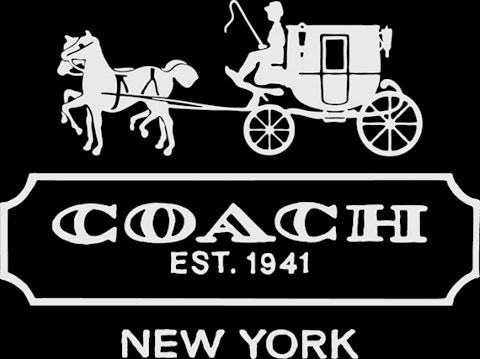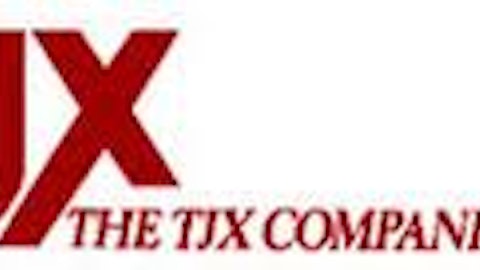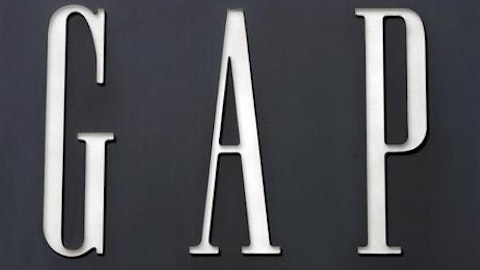Michael Kors Holdings Ltd (NYSE:KORS), a designer and retailer of branded apparel and accessories, has enjoyed a significant rise since the beginning of 2012. The stock advanced from around $26 per share in January 2012 to more than $63 per share in February 2013. However, it has recently experienced a pullback to around $57 per share. Jim Cramer ranked the stock as a buy. Let’s find out whether or not investors should follow Jim Cramer’s advice into Michael Kors Holdings Ltd (NYSE:KORS) now.
Business snapshot
Michael Kors, incorporated in the British Virgin Islands in 2002, is considered a global luxury lifestyle brand in around 85 countries with two primary collections: the Michael Kors luxury collection, and the MICHAEL Michael Kors accessible luxury collection. The business is divided into three main segments: retail, wholesale, and licensing. The majority of its revenue, $626.94 million or 48% of total sales, was generated from the retail segment. The wholesale segment ranked second, with $610.16 million in fiscal 2012 net sales, while the licensing segment contributed only $65.15 million in net revenue. In terms of geography, Michael Kors Holdings Ltd (NYSE:KORS) derived its revenue mainly from North America, with $537.4 million in retail sales and $544.7 million in wholesale sales.

Among the three segments, licensing generated the highest operating margin at 62.7%. The operating profit of the retail segment was $121.85 million, translating into an operating margin of 19.4%. The wholesale segment had the lowest margin at 13.9%, with $85 million in 2012 operating profit. What makes me interested in the company is the consistent positive comparable store sales growth over the past five years. Since 2008, its store count has grown from 48 to 297, while comparable store sales rose 39.2% in 2012. In the third quarter of fiscal 2013, comparable store sales experienced a terrific jump of 41.4%.
But extremely high valuation
What makes Michael Kors Holdings Ltd (NYSE:KORS) more attractive is its conservative capital structure. As of December 2012, it had $924 million in total stockholders’ equity, $406 million in cash and no debt. At the current trading price of around $57 per share, Michael Kors is worth around $11.5 billion on the market. The market is valuing the company at as much as 19 times EV/EBITDA.
Compared to its peers, including Coach, Inc. (NYSE:COH) and Ralph Lauren Corp (NYSE:RL), Michael Kors seems to be extremely expensive. Coach, Inc. (NYSE:COH), at around $49 per share, has a total market cap of around $13.8 billion. The company has the cheapest valuation among the three, at 7.53 times EV/EBITDA. Ralph Lauren Corp (NYSE:RL), the biggest company among the lot with around $16 billion in total market cap, is valued at nearly 11 times EV/EBITDA.
Coach is the most efficient
Among the three, Coach, Inc. (NYSE:COH) seems to have the most efficient operations. In the past twelve months, Coach generated the highest operating margin at 31.4%. Ralph Lauren had the lowest operating margin at 16%, while the operating margin of Michael Kors stayed at 28.2%. In addition, Coach could turn its receivables and inventory into cash much quicker than the other two. In the past twelve months, Coach’s cash conversion cycle (CCC) was 102.2 days, while Ralph Lauren Corp (NYSE:RL) experienced the highest cash conversion cycle of nearly 122.8 days. The CCC of Michael Kors was in between, around 116.9 days.
Foolish bottom line
At the ridiculously high multiple, I personally do not think investors should invest in Michael Kors at its current price. Among the three fashion retailing companies, I like Coach the best due to its lowest valuation and the most efficient operations.
The article A Fast Growing but Extremely Expensive Fashion Stock originally appeared on Fool.com and is written by Anh HOANG.
Copyright © 1995 – 2013 The Motley Fool, LLC. All rights reserved. The Motley Fool has a disclosure policy.





